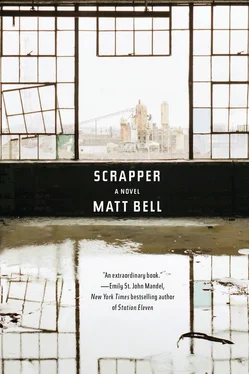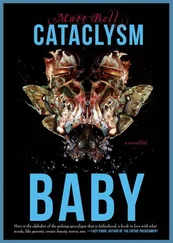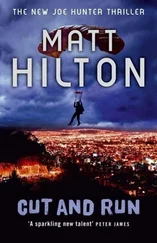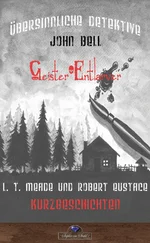But he’s gone, Kelly said. The boy has gone back to his parents. I don’t see him anymore. Didn’t his parents tell you? They’ve taken him back. Cut off contact. Whatever might have happened has already ended.
The detective stared, waited for more. The case notes were in the bedroom, in the bottom drawer of the nightstand, next to the stacked mattress. Kelly could give them to the detective, free himself of their burden. He had failed to find the man in the red slicker and he could be released of the charge. He was not a detective. No one was expecting him to solve the case but he had tried his best. He was still trying but in the end he had to admit the paltriness of his notes. The lack of conclusiveness. All the pages were filled with his script but reading them again had left him more afraid than ever. The difficulty of premeditation. How long had he known his course? He was either in or he was out. Ever since he found the boy he had been telling himself a story and it was important that at the last moment the ending became its own inevitable answer to the world.
The simplest version of the ending to come: he had promised to protect the boy.
Kelly thought he could stop everything if he could give the case notes to the detective but he knew he couldn’t, not without explanation. Because he wouldn’t explain himself he sat in silence, let his face sag blankly, waiting for the questioning to be over or for the blow of something worse. Thoughts followed, but nothing he would say without prompting. The heavy detective continued to talk but Kelly stopped listening. He didn’t notice when he closed his eyes but when he opened them the detective was already walking out the door, shaking his head.
The blonde reporter was on the news every night and in his apartment Kelly watched the broadcast until he had seen her and the weather. The forecast was always for clouded skies and snow and whenever the reporter appeared she wore a series of pantsuits and power skirts, blue and black and light and dark gray. He watched every night but he never again saw the tan skirt, the knee-high boots. As if the outfit had been worn for his benefit.
On-screen, she stood beside a median over the west-east freeway, drive time passing fast behind her, the last gasp of quick movement before the nightly slowing of traffic. This was the day of the shooter on the freeway, each shot coming out of a moving vehicle, fired across the median. No one had been killed but the blonde reporter said a wounded man had tickets to the hockey game. The home team lost and the man got treated for a bullet wound and this was the city they lived in. Now the blonde reporter spoke over a photograph of a cracked window, the bullet hole intact in the middle of the glass. Kelly lifted his own loaded pistol from where it sat beside him on the couch, raised it to the screen. Aimed its barrel at the bullet hole.
The blonde reporter’s voice was speaking but he seldom listened to her words. He steadied the pistol. He mouthed the word bang until the bullet hole was gone, replaced by a map of the lower half of the state, covered in fluorescent clouds.
Snow again, the weatherman said, and temperatures dropping ever closer to zero.
Kelly picked up his cell, called the blonde reporter, the number on her card pasted in the case notes. When she answered Kelly said his name and waited. When she didn’t respond immediately he said it again, growled a question. Did she remember him or not. Would she see him again. Could he buy her a drink.
The case notes were in his hands now. He said, There’s something I need to tell you.
I’m married, remember? she said.
I do remember, he said. The ring’s fake.
Not anymore, she said. She’d met a man, engaged him. Now her ruse was her reality.
But you’re not married, he said. Only engaged.
Engaged to be married. It’s the same thing.
Nothing is the same thing, he said. There are no equivalencies.
Kelly liked how when you hung up a cell phone there was no dial tone after. Just the ending of sound, its trailing absence.
The next morning the reporter called back, said she could interview him again. The sports anchor had told her about the fight, about Kelly versus the contender. Bringer was someone who mattered, who viewers could be convinced to cheer. More human interest. The accidental hero versus some future greatness of the sport. A feature story, the blonde reporter offered, a way to close the loop, to connect the finding of the boy with the battle of man versus man.
As mornings passed the preparations for the fight took on a fated aspect: if Kelly were hurt or killed in the fight, then without him the target would go free. He threw himself recklessly against the bodies of the other men, sought a stance to bring them hardest against him in return. What could he say or do to them to remove their hesitance, their resistance to the possibility of lasting harm? He jabbed, circled, jabbed, and moved in for a clinch, a chance to push his forehead into the face of another man, a chance to lift a knee into a thigh or kneecap. He fought dirty, sought to anger, bragged in the locker room to anyone who would listen. There was no difference between the amount of force necessary to knock a man out and the amount necessary to kill a man and he invited whatever might come, wanted to taunt it out of his opponents. They shied away, left him alone in the shower room. He told himself they were practicing for an exhibition and he was preparing for something real, outside the ring. Not the representation of battle but battle itself. Every injury became an exhumation by exhaustion, until there would be nothing hidden, nothing buried, nothing left, and when he was nothing but bruises he would carry his blood in his skin and what was trapped within him would be brought to the surface.
The trainer stopped him in the locker room, handed him a paper-wrapped package. He smiled as Kelly tore the paper to uncover the necessary ceremonial garb: a new pair of red gloves, the red-and-white shorts, the hooded red robe.
A gift, the trainer said. For your first and only fight.
Now the scrapper. Now the salvor. Until the duty was done.
Now the deep winter. Now the blue air and the slow cracking of concrete against the frozen and immovable earth. Now the streets ever more vacant in the zone, all Kelly’s knowledge of their topography blurred by constant snowfall. Now the unbroken clouds hiding the pale and heatless heart of the sun.
Now Kelly returned to the neighborhood where he’d found the boy, circled the missing house, read the street’s graffiti as prophecies, premonitions, threats. the great hope, he read. once again spelled once agian. Words he couldn’t read, words in Spanish and Polish and Arabic, other scripts he couldn’t identify, mangled senseless by ornamentation. the only age. A dead raccoon crushed in the street, tagged with blue spray paint, the photorealistic face of a child stenciled onto a brick wall, bracketed by birth date, death date. He rarely saw another person outside but he saw their evidence. dead serious. amos, lied to. He saw snowplows moving through some blocks but more of the streets went unplowed. There were streets where he wasn’t convinced there was one human soul remaining and those were the blocks he searched the hardest. The longer the walk the braver it made him. The boredom of being alone, walking below the many names of the Messiah scrawled in spray paint, the higher the holier. More names everywhere, names falling down, and when the names were gone what city would remain.
This was his last chance but what was the chance the man in the red slicker was wearing the same clothes. What was the chance he looked anything like what Kelly had imagined. Kelly didn’t know, kept moving house to house, block to block. He opened gates, walked up to front doors, tested locks and knockers, and in every entranceway he wanted to yell Hello , to yell Is anyone home , to yell out some right name.
Читать дальше












